Best Educational Toys & Games for Infants and Toddlers
Get the world’s most fascinating discoveries delivered straight to your inbox.
You are now subscribed
Your newsletter sign-up was successful
Want to add more newsletters?

Delivered Daily
Daily Newsletter
Sign up for the latest discoveries, groundbreaking research and fascinating breakthroughs that impact you and the wider world direct to your inbox.

Once a week
Life's Little Mysteries
Feed your curiosity with an exclusive mystery every week, solved with science and delivered direct to your inbox before it's seen anywhere else.

Once a week
How It Works
Sign up to our free science & technology newsletter for your weekly fix of fascinating articles, quick quizzes, amazing images, and more

Delivered daily
Space.com Newsletter
Breaking space news, the latest updates on rocket launches, skywatching events and more!

Once a month
Watch This Space
Sign up to our monthly entertainment newsletter to keep up with all our coverage of the latest sci-fi and space movies, tv shows, games and books.

Once a week
Night Sky This Week
Discover this week's must-see night sky events, moon phases, and stunning astrophotos. Sign up for our skywatching newsletter and explore the universe with us!
Join the club
Get full access to premium articles, exclusive features and a growing list of member rewards.
For babies
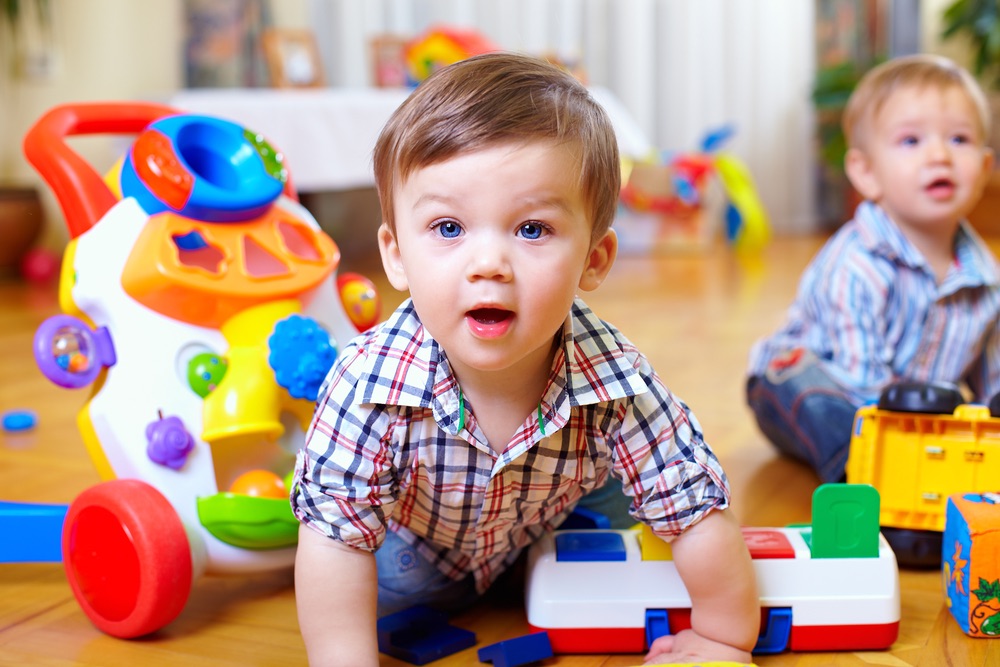
In the first year of a baby's life, the brain doubles in size, according to a 2007 study. The hippocampus, a seahorse-shaped structure deep in the brain that is used in memory processing, reaches its adult size by 10 months of age. These anatomical changes go hand-in-hand with rapid development: Motor skills, language, and even social understanding all advance by leaps and bounds.
Toddlerhood brings an even more dramatic transformation, as kids learn to walk and talk and solve problems. These science-y toys will put all that developing brainpower to good use.
Beginner Shape 3-Piece Puzzle - Bugs
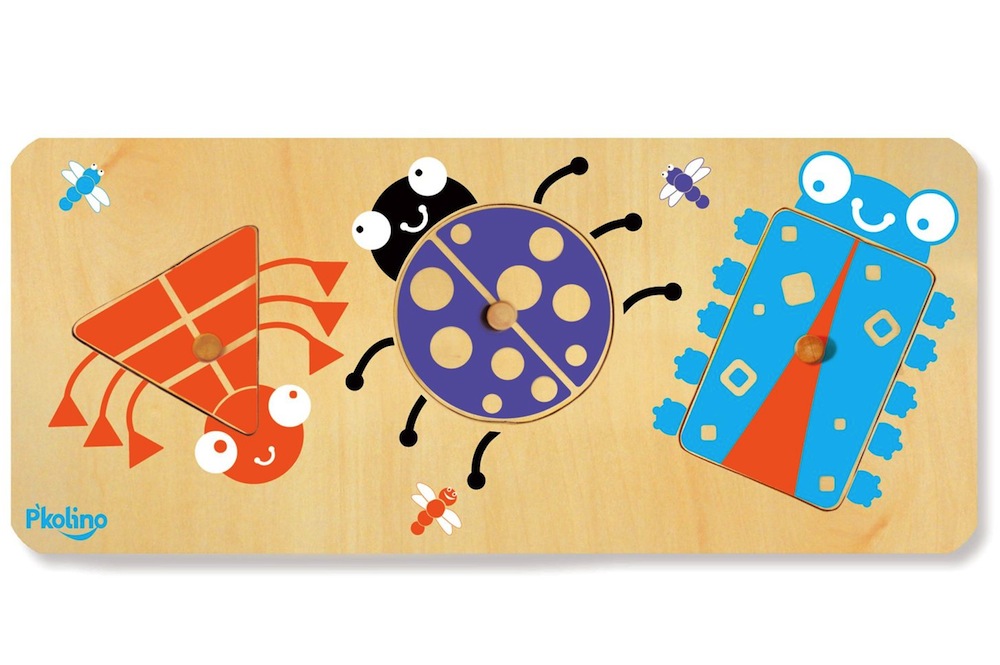
Introduce your baby to the wonders of nature early with this three-piece wooden puzzle. The toy will also introduce your child to shapes (triangle, circle and rectangle), and matching pictures underneath will help your baby recognize where each piece should go. The plywood pieces are made with a non-toxic, water-based finish, according to P'kolino. (Recommended ages: 6+ months)
Price: $11.99
A Dinoztory Book
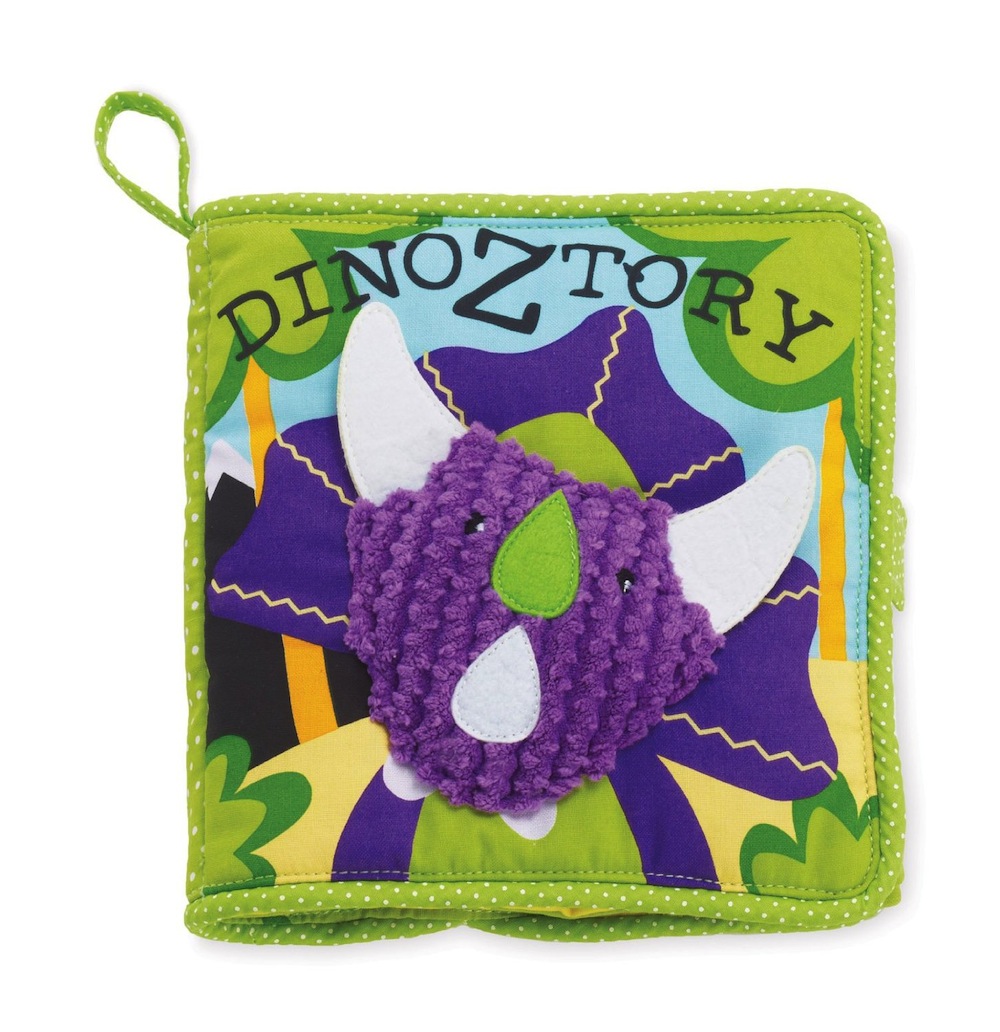
Give your baby a hands-on experience with this adorable soft book about dinosaurs. The four pages include colorful and tactile fabrics to stimulate your baby's senses. The book is held together with a velcro-like clasp, and it's easy to clean with lukewarm water and soap. (Recommended ages: 6+ months)
Price: $17.50
Newborn-to-Toddler Play Gym
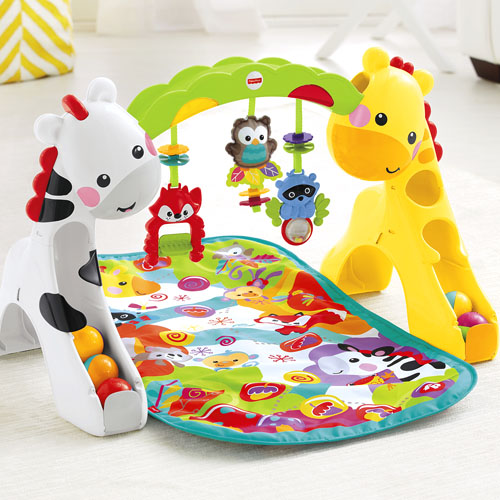
This Fisher-Price activity center features lights, sounds and music to stimulate your baby's senses and help your bundle of joy develop fine motor skills, balance and coordination. The convertible play gym is designed to "grow" with your child, meaning babies can start by lying on the machine-washable padded mat, before graduating to sitting down and playing, and finally standing at the activity center. (Recommended ages: Birth and up)
Get the world’s most fascinating discoveries delivered straight to your inbox.
Price: $51.98
Busy Learners Activity Cube
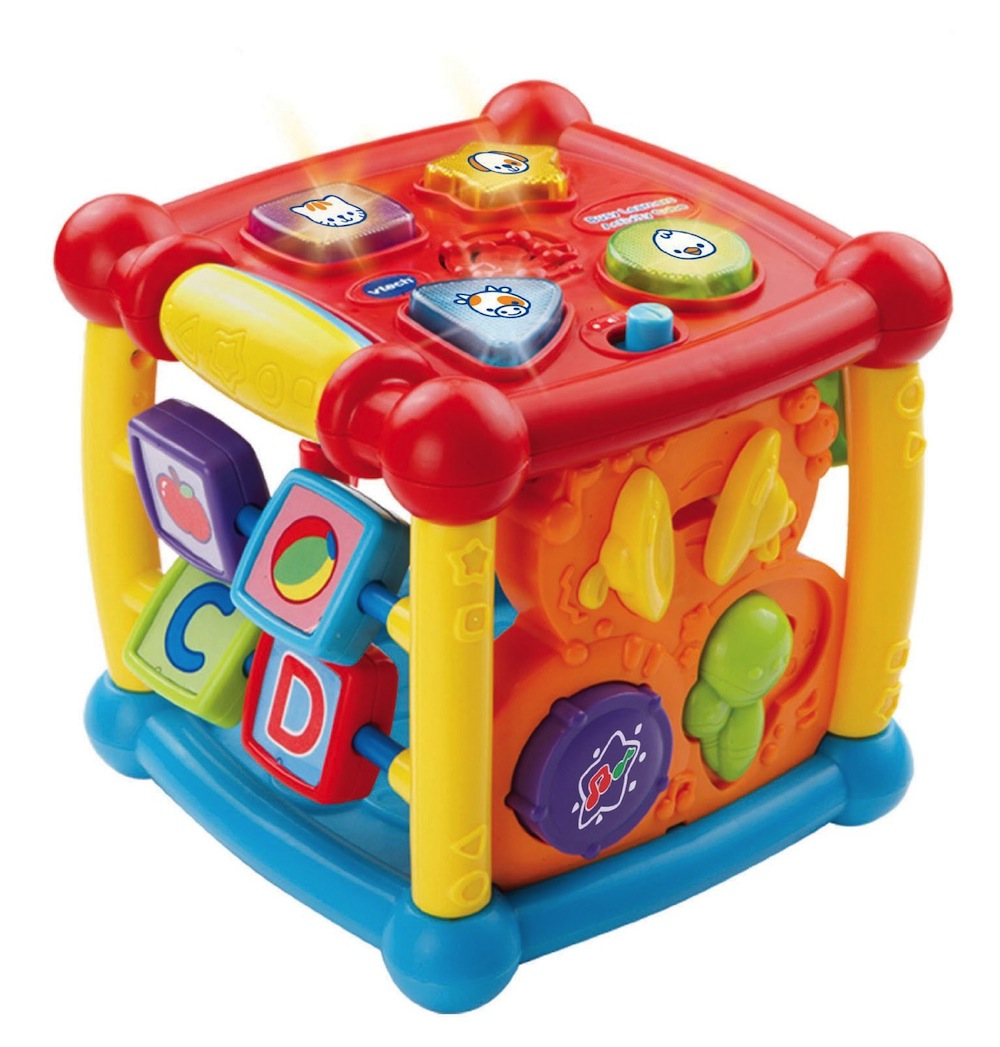
This interactive toy includes 14 manipulative features that teach babies to twist, spin and press buttons. The five sides of activities will stimulate babies' senses and encourage them to learn while having fun. (Recommended ages: 6 months to 3 years)
Price: $19.29
Shapes & Sharing Picnic Basket
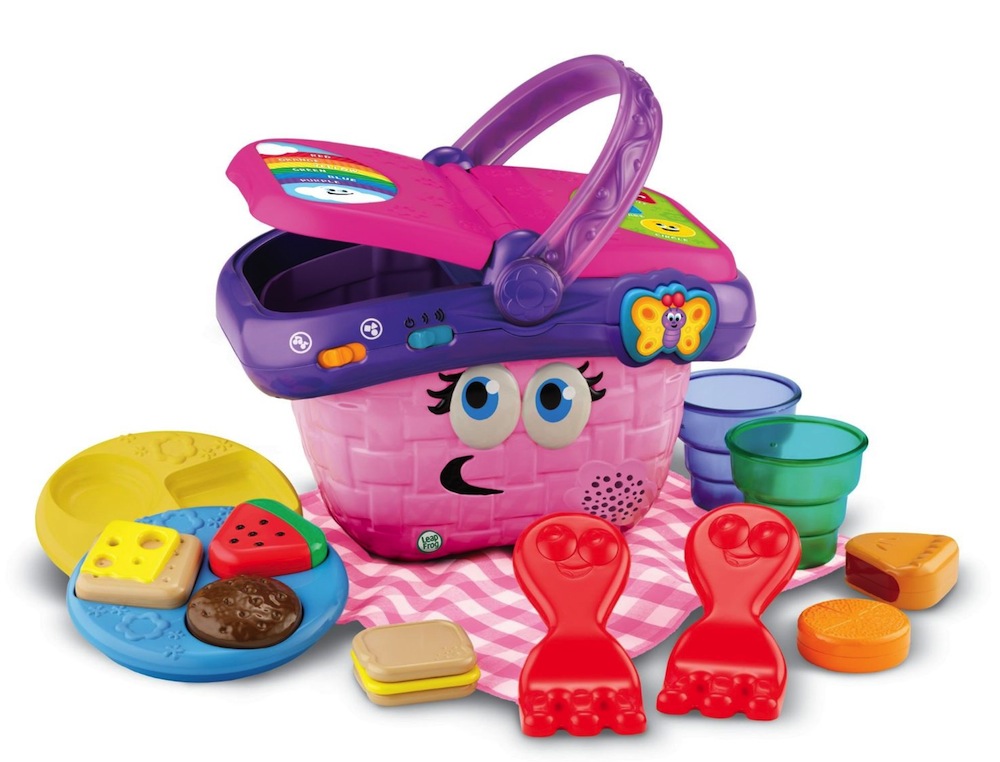
This talking picnic set by LeapFrog is designed to help kids learn about shapes, colors and manners with fun learning songs and sound effects. Toddlers can also build their motor skills with sorting, matching and stacking activities. The set includes six food items, two plates, two forks, two cups, one blanket and one basket that all help to stimulate your little learner's imagination. (Recommended ages: 6 months to 3 years)
Price: $18.74
My First Rocket, Lego Style
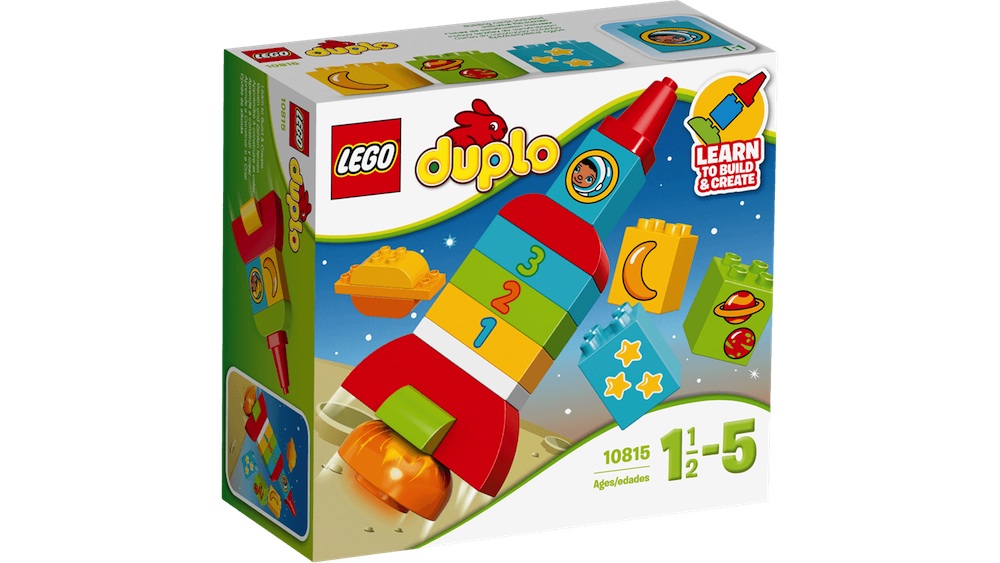
Lego is known for its colorful brick construction sets, but even little kids can get in on the fun with the company's Duplo line of products. If you're keen to stoke your tot's interest in science, then the Lego Duplo My First Rocket set may be the perfect gift. Kids can build and create a colorful rocket and planet with Lego Duplo's chunky bricks that are specialy designed for little hands. The fun set encourages kids to use their imagination, but children will also learn counting skills with numbered bricks and corresponding pieces showing one moon, two planets and three stars. (Recommended ages: 1.5 to 5 years)
Price: $9.99
Kids First Amusement Park Engineer
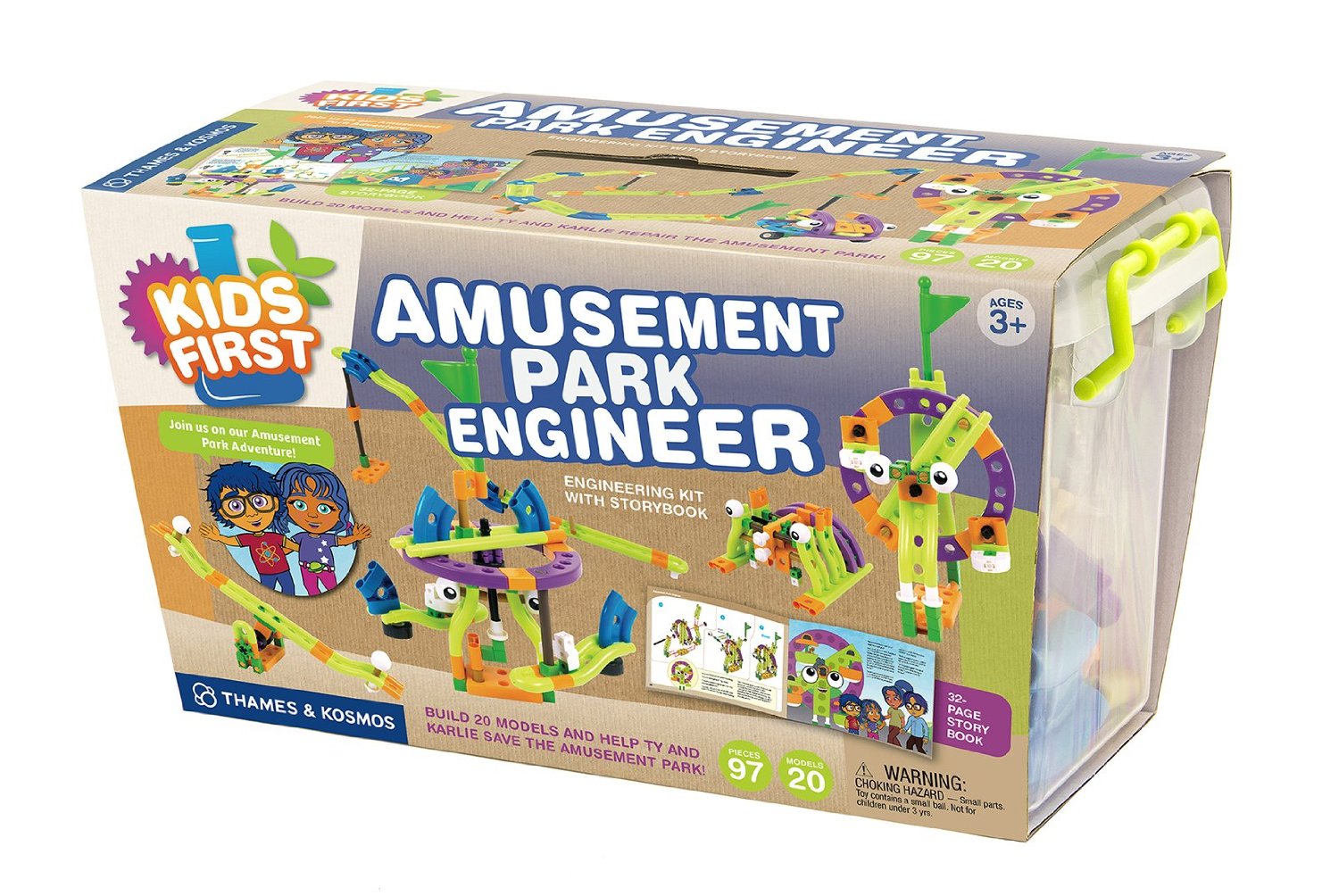
Introduce your preschooler to the principles of engineering with this 97-piece science kit. Kids can follow a storybook adventure and build amusement park rides (including a Ferris wheel, bumper cars, a roller coaster and a log flume ride) along the way. The colorful plastic building pieces were specially designed for little hands, and the kit helps children develop fine motors skills, visual-spatial skills and reasoning techniques. Kids will also learn basic math, science and physics lessons as they build their amusement parks. (Recommended ages: 3+ years)
Price: $51.98
My First Microscope
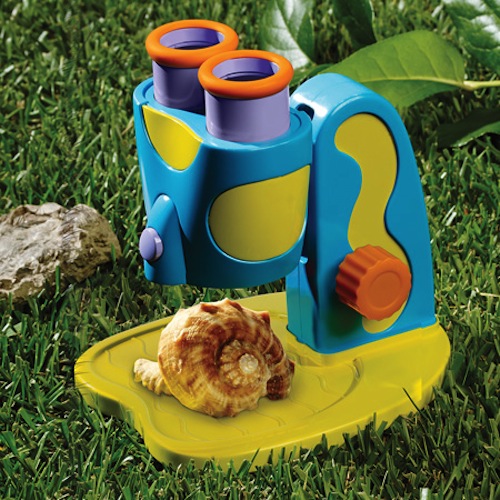
There's no better way to get kids excited about science than with hands-on activities. The GeoSafari Jr. My First Microscope can help preschoolers explore hidden worlds at a range of magnifications, from 2.5x to 8x. The two large eyepieces and chunky focusing knob are specially designed for little learners, and the large, fixed sample tray can hold flat and 3D objects. (Recommended ages: 3+ years)
Price: $16.49
Playful Dino
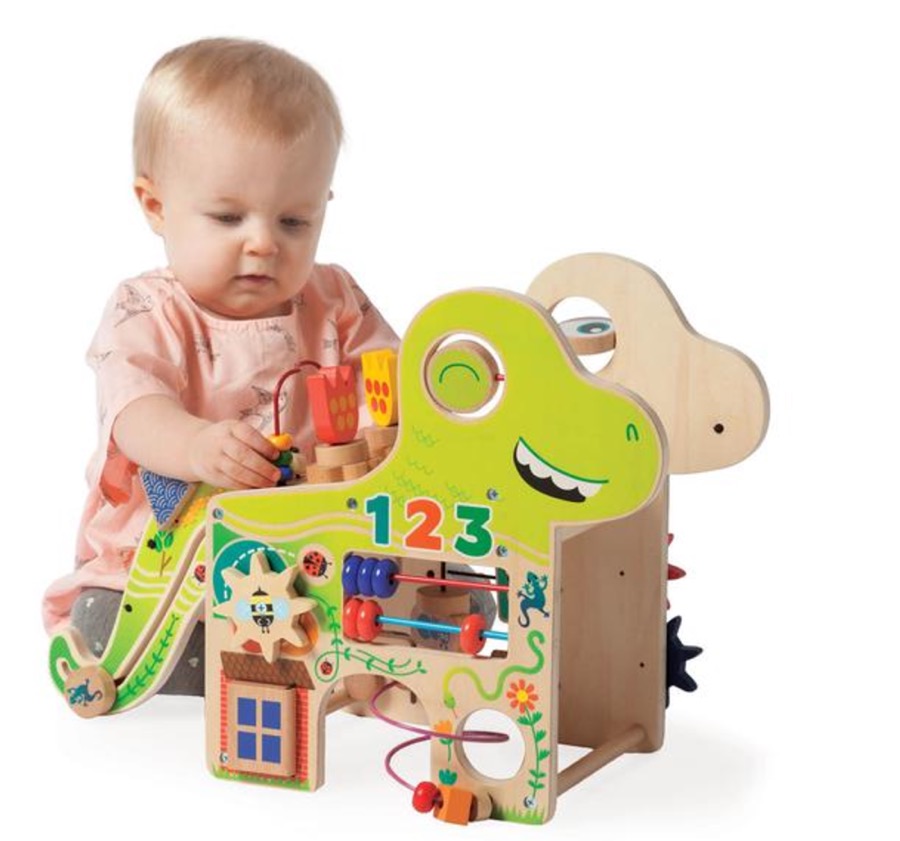
Gift the toddler on your list a playset with a paleontological twist. The Playful Dino features bead mazes, spinning gears, swirly eyes and other fiddly bits that will keep the 1-and-up set engrossed. Toddlers will develop fine-motor skills and learn about cause-and-effect as they manipulate the playset's wooden features — and exhausted parents can celebrate the lack of loud noises or strobe-light effects.
(Recommended age: 1 and up)
Price: $68
BUY Playful Dino at Manhattan Toy Co.
<
Count Along Cash Register
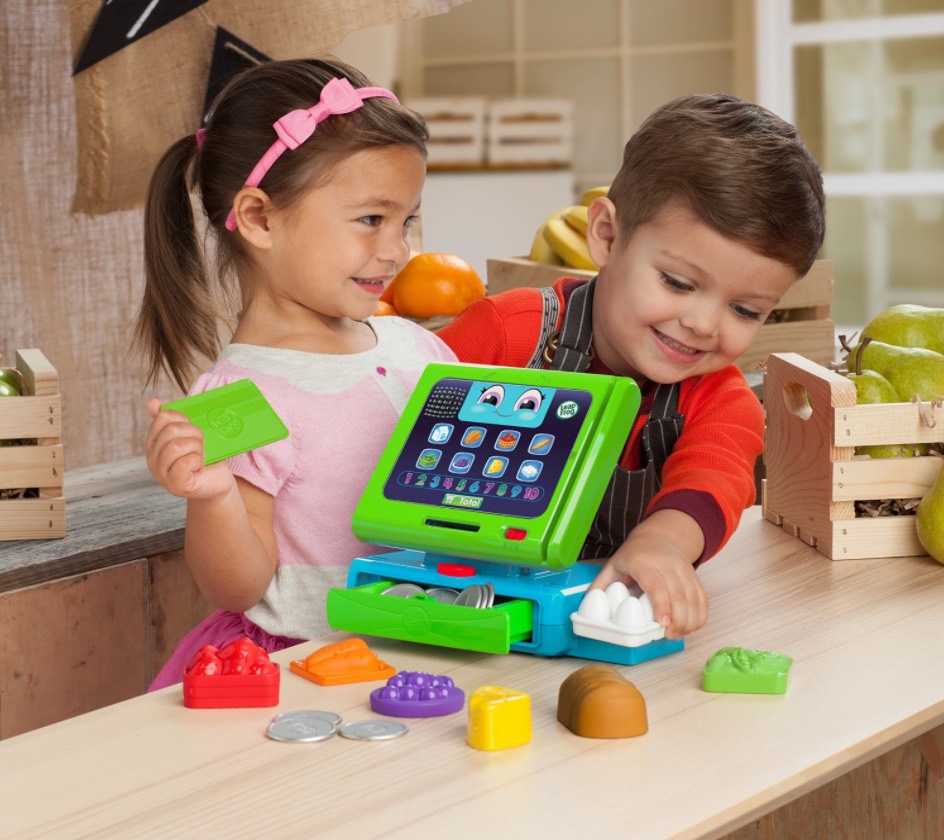
Subtly encourage a love of math and counting with LeapFrog's Count Along Cash Register. Kids will love mimicking the grown-ups in their lives by "checking out" colorful plastic food items as the cash register sings and counts. The register prompts kids to insert the correct number of coins into its slot and counts the groceries as kids scan them.
(Recommended age: 2 and up)
Price: $26.25

Stephanie Pappas is a contributing writer for Live Science, covering topics ranging from geoscience to archaeology to the human brain and behavior. She was previously a senior writer for Live Science but is now a freelancer based in Denver, Colorado, and regularly contributes to Scientific American and The Monitor, the monthly magazine of the American Psychological Association. Stephanie received a bachelor's degree in psychology from the University of South Carolina and a graduate certificate in science communication from the University of California, Santa Cruz.
 Live Science Plus
Live Science Plus










